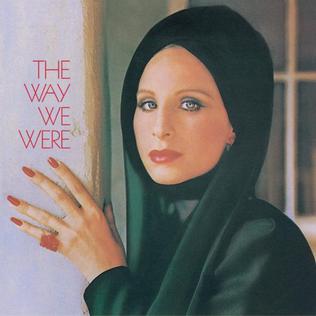
A fandom is a subculture composed of fans characterized by a feeling of camaraderie with others who share a common interest. Fans typically are interested in even minor details of the objects of their fandom and spend a significant portion of their time and energy involved with their interest, often as a part of a social network with particular practices, differentiating fandom-affiliated people from those with only a casual interest.

Napster was a peer-to-peer (P2P) file sharing application primarily associated with digital audio file distribution. Founded by Shawn Fanning and Sean Parker, the platform originally launched on June 1, 1999. Audio shared on the service was typically encoded in the MP3 format. As the software became popular, the company encountered legal difficulties over copyright infringement. Napster ceased operations in 2001 after losing multiple lawsuits and filed for bankruptcy in June 2002.

Newton Booth Tarkington was an American novelist and dramatist best known for his novels The Magnificent Ambersons (1918) and Alice Adams (1921). He is one of only four novelists to win the Pulitzer Prize for Fiction more than once, along with William Faulkner, John Updike, and Colson Whitehead. In the 1910s and 1920s he was considered the United States' greatest living author. Several of his stories were adapted to film.

Academic publishing is the subfield of publishing which distributes academic research and scholarship. Most academic work is published in academic journal articles, books or thesis. The part of academic written output that is not formally published but merely printed up or posted on the Internet is often called "grey literature". Most scientific and scholarly journals, and many academic and scholarly books, though not all, are based on some form of peer review or editorial refereeing to qualify texts for publication. Peer review quality and selectivity standards vary greatly from journal to journal, publisher to publisher, and field to field.

Digitization is the process of converting information into a digital format. The result is the representation of an object, image, sound, document, or signal obtained by generating a series of numbers that describe a discrete set of points or samples. The result is called digital representation or, more specifically, a digital image, for the object, and digital form, for the signal. In modern practice, the digitized data is in the form of binary numbers, which facilitates processing by digital computers and other operations, but digitizing simply means "the conversion of analog source material into a numerical format"; the decimal or any other number system can be used instead.
The Daily Illini, commonly known as the DI, is a student-run newspaper that has been published for the community of the University of Illinois Urbana-Champaign since 1871. Weekday circulation during fall and spring semesters is 7,000; copies are distributed free at more than 100 locations throughout Champaign–Urbana.

Comics Buyer's Guide, established in 1971, was the longest-running English-language periodical reporting on the American comic book industry. It awarded its annual Comics Buyer's Guide Fan Awards from 1983 to circa 2010. The publication ceased with the March 2013 issue. The magazine was headquartered in Iola, Wisconsin, after originally being published in the Quad Cities region.

The Phoenix was the name of several alternative weekly periodicals published in the United States of America by Phoenix Media/Communications Group of Boston, Massachusetts, including the Portland Phoenix and the now-defunct Boston Phoenix, Providence Phoenix and Worcester Phoenix. These publications emphasized local arts and entertainment coverage as well as lifestyle and political coverage. The Portland Phoenix, which was published until 2023, is now owned by another company, New Portland Publishing.

Famitsu, formerly Famicom Tsūshin, is a line of Japanese video game magazines published by Kadokawa Game Linkage, a subsidiary of Kadokawa. Famitsu is published in both weekly and monthly formats as well as in the form of special topical issues devoted to only one console, video game company, or other theme. Shūkan Famitsū, the original Famitsu publication, is considered the most widely read and respected video game news magazine in Japan. From October 28, 2011, the company began releasing the digital version of the magazine exclusively on BookWalker weekly.

il Giornale, known from its founding in 1974 until 1983 as il Giornale nuovo, is an Italian-language daily newspaper published in Milan with an average circulation of 28,933 copies in May 2023. Alongside Corriere della Sera, la Repubblica, and La Stampa, it is one of the main national newspapers in Italy.

Mary Meeker is an American venture capitalist and former Wall Street securities analyst. Her primary work is on Internet and new technologies. She is the founder and general partner at BOND, a San Francisco–based venture capital firm. She previously served as partner at Kleiner Perkins.
The term born-digital refers to materials that originate in a digital form. This is in contrast to digital reformatting, through which analog materials become digital, as in the case of files created by scanning physical paper records. It is most often used in relation to digital libraries and the issues that go along with said organizations, such as digital preservation and intellectual property. However, as technologies have advanced and spread, the concept of being born-digital has also been discussed in relation to personal consumer-based sectors, with the rise of e-books and evolving digital music. Other terms that might be encountered as synonymous include "natively digital", "digital-first", and "digital-exclusive".

The Way We Were is the fifteenth studio album recorded by American singer Barbra Streisand. The album was released in January 1974, preceded by the commercial success of its lead single "The Way We Were" first released in September 1973.

The Christian film industry is an aspect of Christian media for films containing a Christian-themed message or moral. They are often interdenominational films, but can also be films targeting a specific denomination of Christianity.

Fred Barney Taylor is an American independent filmmaker. He is best known for directing The Polymath or, The Life and Opinions of Samuel R. Delany, Gentleman in 2007 which premiered at the Tribeca Film Festival. It was an official selection of the 2008 International Festival of Films on Art, London International LGFF, FRAMELINE, OUTFEST, REELING, and Seattle GLFF.
Wind from the East is a 1970 film by the Dziga Vertov Group, a radical filmmaking cooperative that, at its core, included Jean-Luc Godard and Jean-Pierre Gorin. As with most films from this period in Godard's career, directing credit was given to the collective and not himself or other individual filmmakers.

Chuck Kleinhans was an associate professor of film studies at Northwestern University for 32 years and co-founded Jump Cut with Julia Lesage and John Hess. He co-edited the journal from its inception in 1974 until his death.
Women & Film, published in California between 1972 and 1975, was the first feminist film magazine, "a project that would transform cinema".

"Surfin' U.S.A." is a song by the American rock band the Beach Boys, credited to Chuck Berry and Brian Wilson. It is a rewritten version of Berry's "Sweet Little Sixteen" set to new lyrics written by Wilson and an uncredited Mike Love. The song was released as a single on March 4, 1963, backed with "Shut Down". It was then placed as the opening track on their album of the same name.













